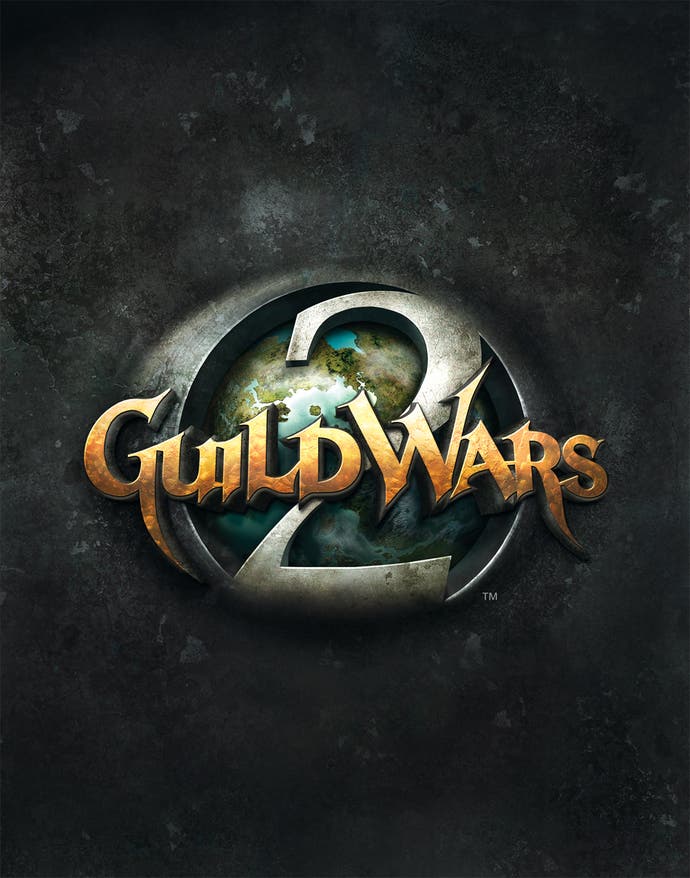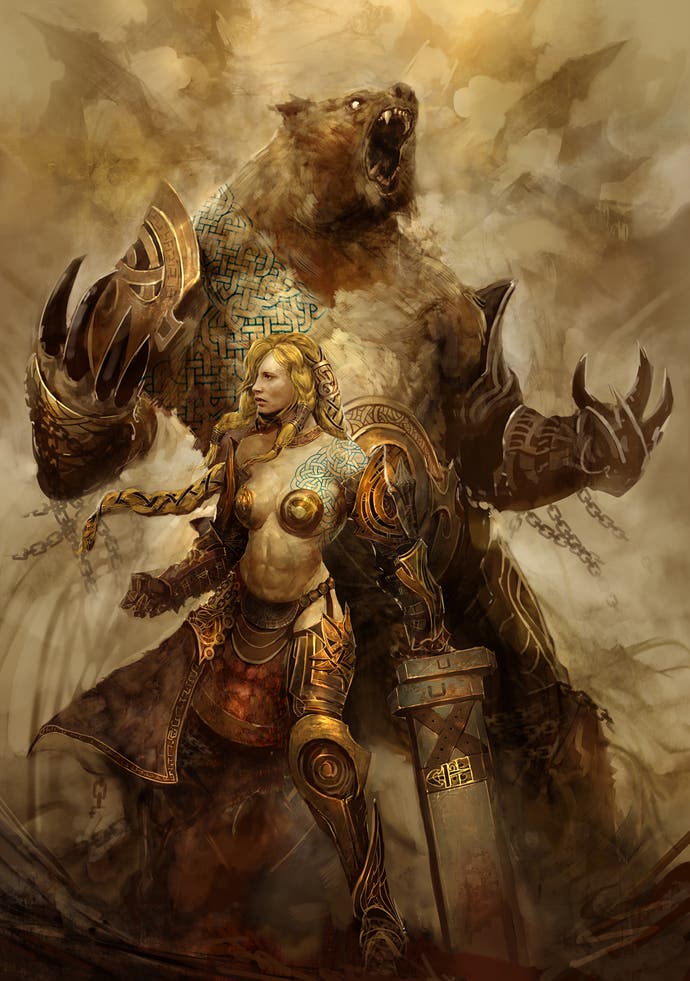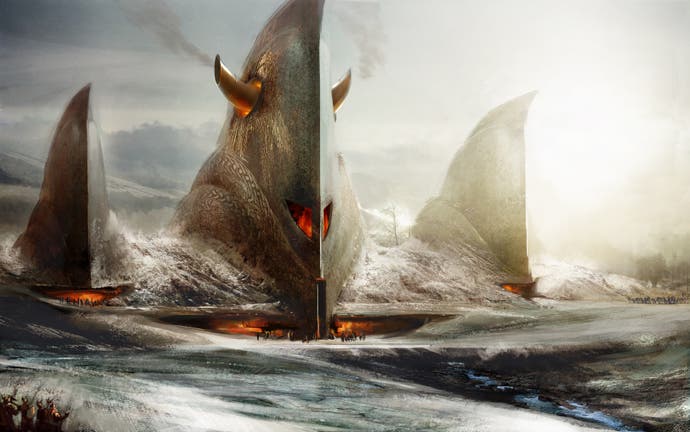The best things in life are free
ArenaNet and NCsoft talk Guild Wars 2.
Guild Wars began as three people's big idea, an MMORPG to break the mould, and one that would feature no monthly subscription fees - something many of us predicted would certainly lead to an early demise, especially against such fierce opposition.
However, that couldn't be further from the truth, and developer ArenaNet continues to go from strength to strength, bulging to over 130 staff today.
Guild Wars has also grown, flaunting two standalone expansion packs - with a third in development - plus sales exceeding three million for the series. We also recently found out that a sequel was in development, Guild Wars 2, scheduled to start beta testing some time in 2008.
So, in an effort to fill our mind with wistful fantasies, Eurogamer copped hold of game designers Ben Miller and Eric Flannum for a little chat, to find out just what lay in store for us in Guild Wars 2.

Guild Wars has been a very innovative game that entered into an area of online role-playing where there was no product filling the demand. And I think the customers rewarded innovation.
Guild Wars is very different from traditional MMOs, not only in its business model but in the way it plays. I think it's much more accessible to people; it allows you to jump in and enjoy it right away - you don't spend as much time preparing to have fun.
It's a game where you can be good at it based on your personal skill rather than having to spend 1000 hours levelling up in order to compete. And I think having no monthly fees has had a lot to do with it.
So I think all of these things came together and offered people a new online experience they never had before.
We are a lot bigger today, but I don't think our focus has changed.
We are about 130 people today, and have grown a lot in order to support the success of Guild Wars. But our company is not one that's working on lots of different projects; we're a company that focuses on Guild Wars, and the goal of everyone here is to make Guild Wars the best game that it can possibly be.
That means we play every other game out there and listen to our fans, as we figure out how to make the best game possible.

We're not trying to make a different game that appeals to a different audience; we want Guild Wars 2 to be the game Guild Wars players want to play.
We've been working on Guild Wars now for quite a few years, and realised many of the directions we tried worked out really well, while some didn't work out the way we wanted them to. So now we have an opportunity to go back and redo some of those decisions, to really make the game Guild Wars could have been all along.
Guild Wars 2 is going to feel similar to people who liked Guild Wars.
People who loved Guild Wars because it had very interesting strategic combat, or because there were lots of decisions for players to make, like choosing your strategy before a mission; it wasn't just about levelling up.
Those people who loved Guild Wars for its competitive aspect. People who loved Guild Wars for the fact it's so easy to get into and didn't make you sit around waiting to form a party, but let you jump into an mission and even solo most of the content in the game. All of those people are going to love Guild Wars 2.
But at the same time we're making improvements to the game that are really going to make what we view as the ultimate Guild Wars experience. And hopefully people who liked Guild Wars will like Guild Wars 2 a whole lot more.
In Guild Wars everybody plays in the same world and you can play with anyone you meet who has the game; you never run into the problem where you play on a different server to someone and can't adventure with them.
But a downside is you might never meet people from a random pick-up group you once went adventuring with again, because the world is so enormous.
So in Guild Wars 2 we want to have a big "persistent world" where you're out running into other people as you play. You could be fighting a dragon attacking a tower for instance, and other players will choose to come to your aid, rather than having you shut off from other players in your own instance of the world. Although some elements of the game will remain instanced - like in Guild Wars - such as dungeons, because it's cool and natural for them to be.
But when the world becomes persistent like that, then obviously you don't want everybody in the same instance of the world. If you've got hundreds of thousands of people online, you don't want them all standing in the same valley and tripping over each other.
So Guild Wars 2 will have different "persistent worlds", different servers so to speak, where you can build up a reputation and run into the same people over and over, naturally making friends by bumping into and adventuring with other people.
But what we can do is unify them with our single unified database from Guild Wars, which will allow people to move from server to server, right across worlds.
So we can get all those strengths and yet keep the aspect of a single international game, where anybody can go to any server to play with or compete against anyone in the world.
I think that's an example of how we can take all the things that have made Guild Wars strong in the past and accentuate them by adding these new improvements and new technology in Guild Wars 2.

We haven't announced the exact mechanic because it's still something we're trying to figure out, but let me talk about the philosophy of why we'll have either a very high level cap or none at all.
In Guild Wars we had a level cap that was intentionally very low, you actually hit it half way through experiencing the story in the game. We did that because we wanted to communicate very strongly it wasn't what the game was about; you didn't have to worry about levelling up, and there were lots and lots of things to do after you'd hit level 20.
So in Guild Wars you'd hit the level cap and still only have a small fraction of what was out there, then essentially keep on levelling up every time you earned 15,000 XP and got a new skill point. It was just the same except the level display didn't get any higher.
What we thought was level did two things for you. It's a very clear indicator of progress first of all, as you could have a character that had a bunch of skills and a cool title, but that didn't necessarily communicate to other people that your character had really accomplished something great - in a way that simply showing the higher number would.
Secondly and more importantly, level allows the game to change the way things feel over time. So when you're making character progress and accumulating attribute points, you eventually max-out one attribute line and move on to a completely new one, making your character and experiences feel different over time.
And what we thought was, could you get those benefits without turning it into a game that's all about time spent? Where anybody who's played for 1,000 hours is going to be a lot better than somebody who's played for just 100 hours
So we have a new system in Guild Wars 2 where everybody who gets into structured PvP will compete on a level playing field; given maximum level and access to all the skills in the game.
We'll also have unstructured PvP, where you'll play as your developed character with their abilities and not be given maximum level and access to all the skills.
We're introducing a sidekick system too, which you may have experienced before in City of Heroes. So that if I log on and want to play with a friend, I can do what my friends can do, regardless of our levels. It doesn't mean I can't play certain content because I'm not a high enough level yet
We've been asked the question a lot by players; whether new expansions or campaigns will raise the level cap of Guild Wars. And we have to say no, because that's not the game - the game is all about having the level 20 cap. So what we're doing with Guild Wars 2 is letting people have that fundamental feeling of progression, without being all about how much time you've spent on your character.

